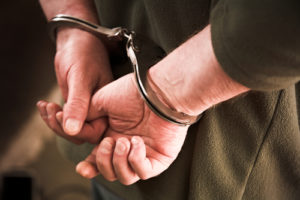 Spanking is a form of child punishment with a long history. Many of today’s parents were spanked as children, and some still believe that spanking has a place in proper child-rearing.
Spanking is a form of child punishment with a long history. Many of today’s parents were spanked as children, and some still believe that spanking has a place in proper child-rearing.
Controversy over spanking children runs high. Several European countries have banned spanking, and the United Nations Convention on the Rights of the Child calls for an end to all physical discipline of children, including any form of corporal punishment.
Nonetheless, many U.S. parents believe spanking is a legitimate form of discipline, whether or not parents use it themselves. While some states have outlawed spanking in schools and daycares, many U.S. families still use it at home.
There are limits to a parent’s “right to spank,” however, even in the United States. Generally speaking, parents are allowed to use corporal punishment if they do so in moderation and without causing physical injuries. A spanking that causes bruises or other injuries, however, could lead to criminal consequences in many states.
Some states even specify how “legal” spanking can be carried out. California, for instance, specifies that “reasonable and age-appropriate spanking to the buttocks” is permitted as long as serious physical injuries do not result.
In some situations, though, spanking crosses the line into abuse. Determining whether corporal punishment is abusive is often done on a case-by-case basis. However, spanking is more likely to be treated as a criminal offense when:
- It causes injuries, not just momentary discomfort
- The amount of force used is unreasonable or
- The purpose was something other than correcting inappropriate or dangerous behavior in the moment.
In addition to facing criminal consequences in situations like these, a parent’s parental rights may be limited or terminated, depending on the specific facts of the situation. Understanding the legal consequences of spanking is crucial for parents to avoid actions that could jeopardize their rights and lead to investigations or legal actions.
Defining Child Abuse and Bodily Injury
Child abuse is defined as any act or failure to act that results in physical injury, emotional trauma, or neglect of a child. In Pennsylvania, child abuse is a serious offense that can lead to criminal charges, including felony charges. Bodily injury, on the other hand, refers to any physical harm or injury that results from corporal punishment. According to Pennsylvania law, bodily injury includes, but is not limited to, bruises, welts, burns, and broken bones.
Pennsylvania’s Laws on Corporal Punishment
Pennsylvania law permits parents and guardians to use corporal punishment, including spanking, as a means of discipline, as long as it is done in moderation and without causing serious bodily injury or mental distress.
According to Title 18, Section 509 of the Pennsylvania Crimes Code, a person responsible for the care, discipline, or safety of a child may use reasonable force to correct the child’s misconduct. However, the use of force must not create a substantial risk of death, serious bodily injury, disfigurement, extreme pain, mental distress, or gross degradation.
Speak With a Criminal Defense Lawyer Today
At Rubin, Glickman, Steinberg & Gifford, P.C., our experienced attorneys offer full-service legal representation in suburban Philadelphia and throughout Southeastern Pennsylvania. For the experience, reputation, and results that you can trust, call us today at 215-822-7575.

Rubin, Glickman, Steinberg & Gifford P.C.
Pennsylvania Attorney's
November 6, 2024









